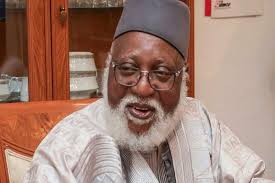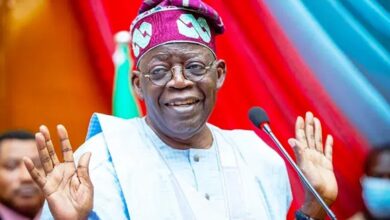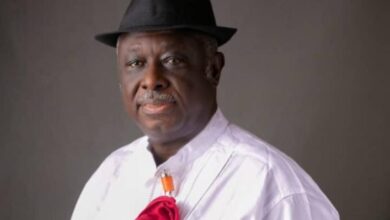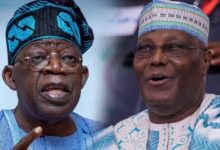
ABUJA – Some eminent political leaders have stressed the urgent need for political stability, adherence to party ideologies, and electoral reforms to strengthen the country’s democracy.
They warned that without these measures, the nation risks ongoing instability, weak governance, and developmental setbacks.
This call to action was made at the launch of the book ‘100 Years of Political Parties Evolution in Nigeria (1923 – 2023)’, which took place in Abuja on Thursday.
The event was organised by the Inter-Party Advisory Council (IPAC) and featured notable speakers, including former Head of State General Abdulsalami Abubakar (represented by General Abdulrasheed M. Aliyu), former Senate President Anyim Pius Anyim, and the Chairman of the Independent National Electoral Commission (INEC), Professor Mahmood Yakubu (represented by Mr. Sam Olumekun, National Commissioner for Election and Party Monitoring).
General Abdulsalami Abubakar commended Nigeria’s democratic resilience, noting that despite past military interventions, the country has sustained 26 years of uninterrupted democracy—the longest in its history.
He emphasised that democracy must be continuously nurtured and strengthened, urging political parties to focus on internal democracy, ideology-based governance, and strict adherence to party manifestos.
He also called for ongoing electoral and constitutional reforms to address systemic flaws and ensure credible elections.
He stated, “Despite military interventions, democracy has come to stay in Nigeria. There is no substitute for the government of the people, by the people, and for the people, which democracy represents, as sovereignty resides with the people. Our democracy has been tested and shaken by reactionary forces and has survived. This is a testament to citizens’ belief in and resilience towards representative governance. It is imperative to explore political parties’ development priorities to consolidate the nation’s democracy and create an environment conducive to successful elections and political stability, in line with the IPAC mandate.”
Former Senate President Anyim Pius Anyim stressed that political instability remains one of Nigeria’s most significant challenges.
He argued that successive governments have failed to transform Nigeria into a stable nation-state, leading to weak governance and insecurity. Anyim warned that unless leaders address mutual suspicion among ethnic and political groups, Nigeria’s progress and stability will continue to be jeopardised.
Anyim urged political actors to take responsibility for uniting the country and fostering national cohesion.
He remarked, “By documenting Nigeria’s experiences in political party formation, evolution, and management over the last 100 years, IPAC has demonstrated leadership and commitment to finding solutions to the persistent problem of political instability in our beloved country. An unstable polity weakens the authority of government and constrains its ability to guarantee security and development. Without overcoming mutual suspicion, every other factor affecting our progress and stability stems from our inability to effectively manage our plural composition. The responsibility is ours, and I dare say, the burden is on this generation. If I may borrow the words of Gen. Yakubu Gowon: ‘This is a task that must be done.’”
Professor Mahmood Yakubu highlighted the pivotal role of political parties in strengthening democracy, stating that they are foundational to any electoral process.
He urged these parties to embrace internal democracy, transparency, and reforms that promote free and fair elections.
He also called on IPAC to continue its advocacy for democratic consolidation and serve as a bridge between political parties and electoral institutions.
Yakubu said, “Internal party democracy is the foundation upon which credible general elections are built. We recognise that electoral reforms are not the sole responsibility of INEC or the National Assembly. I encourage IPAC to continue its advocacy, strengthen its role as a bridge between political parties and the electoral process, and remain a critical stakeholder in Nigeria’s democratic journey.”
IPAC National Chairman, Yusuf Mamman Dantalle, described the book as a landmark documentation of Nigeria’s political history.
He noted that it serves as a valuable resource for understanding the evolution of political parties and their impact on governance. He also announced an upcoming international documentary titled ‘UNBROKEN: TWO AND A HALF DECADES’, which will commemorate 25 years of uninterrupted democracy in Nigeria.
The documentary is set to be broadcast on major local and international platforms, including CNN, Al Jazeera, Netflix, and Amazon Prime, to showcase Nigeria’s democratic journey to a global audience.
“This is the era of the screen revolution; audio-visual documentation is now trending,” he added.
The speakers collectively emphasised that Nigeria’s democracy is at a critical juncture and requires urgent reforms. They called for strong institutions, adherence to democratic values, and a commitment to governance that prioritises national interests over personal or sectional gains.
IPAC urged Nigerians to support efforts aimed at deepening democracy through education, strategic communication, and active participation in political and electoral processes. The council stressed that preserving Nigeria’s political history and learning from past challenges will help build a more stable and prosperous democracy for future generations.






